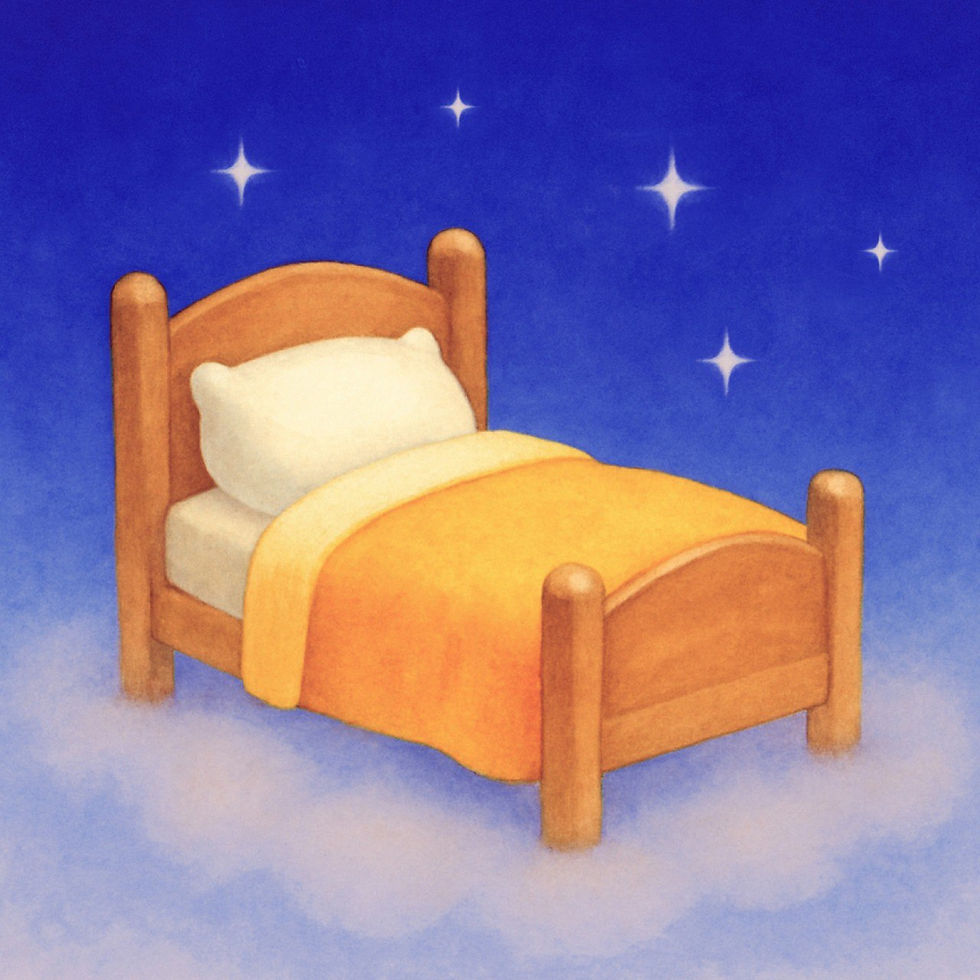How to Fall Asleep Fast: 9 Tips for Better Sleep
- Marina Alekseichik
- Aug 17
- 3 min read
Updated: Aug 21
It’s 3 a.m. You’re lying in bed, your mind racing, your body exhausted, but sleep just won’t come. If this sounds familiar, you’re not alone. “How to fall asleep fast” is one of the most searched sleep-related questions globally. Whether you're struggling with occasional restlessness or full-blown insomnia, the key to better sleep may lie in understanding the science of sleep pressure and developing consistent habits that support natural rest.

What Causes Trouble Falling Asleep?
Sleep struggles can be caused by stress, irregular routines, overstimulation from screens, or even seemingly harmless habits like late-day caffeine or naps. When your sleep pressure — the body’s natural drive to sleep — isn’t strong enough, falling asleep becomes difficult. Add anxiety into the mix, and it becomes a vicious cycle: the more you want to sleep, the harder it gets.
What Is Sleep Pressure and Why Does It Matter?
Sleep pressure builds up the longer you’re awake. It’s largely driven by adenosine, a chemical that accumulates in your brain throughout the day. When you nap, go to bed too early, or spend too much time lying awake in bed, that pressure drops — making it harder to sleep deeply at night.
Supporting healthy sleep pressure is one of the cornerstones of CBT-I (Cognitive Behavioral Therapy for Insomnia), the gold standard treatment for chronic insomnia — and a non-drug solution that many people never hear about.
Top 9 Tips to Fall Asleep Fast and Sleep Better Tonight
Stick to a consistent schedule: Go to bed and wake up at the same time every day, even on weekends. This stabilizes your internal clock.
Build a strong wind-down routine: Dim the lights, disconnect from screens, and avoid stimulating tasks an hour before bed.
Avoid naps (especially after 2 p.m.): Napping reduces your sleep pressure, making it harder to feel tired at night.
Limit caffeine and alcohol: Both can interfere with sleep onset and sleep quality.
Use breathing techniques: Try the “4-7-8” method or progressive muscle relaxation to quiet your nervous system.
Don’t lie in bed awake: If you can’t fall asleep after 20–30 minutes, get up, do something calm, and return to bed when sleepy.
Sleep environment matters: Keep your bedroom dark, cool (around 65°F / 18°C), and quiet. Consider blackout curtains and white noise.
Journal your thoughts: Writing down worries or tasks before bed helps clear your mind.
Let go of tracking: Overuse of sleep trackers can increase anxiety. Sleep is not a performance — it’s a biological process.
Fall Asleep Naturally with CBT-I
CBT-I works by changing how you think about sleep and creating habits that restore your body’s natural rhythm. It teaches you to reduce “sleep effort,” which often worsens insomnia. Techniques include stimulus control (only using bed for sleep), sleep restriction (building sleep pressure), and cognitive restructuring (challenging anxious thoughts about sleep).
Most people who try CBT-I report improvements within weeks — without the side effects of sleeping pills. It's recommended by sleep specialists and organizations like the Sleep Foundation.
How Zomni Can Help
Zomni is a CBT-I–based app designed to help you fall asleep faster and stay asleep naturally — without relying on tracking or medication. The app offers structured guidance based on proven methods, helping you:
Break the cycle of anxiety and overthinking at night
Establish healthy routines and sleep windows
Understand what habits may be keeping you awake
Apply techniques used by top sleep clinics — right from your phone
Sleep isn’t something to chase — it’s something to allow. With gentle guidance and science-backed support, Zomni helps you reconnect with real, restorative rest.



Comments